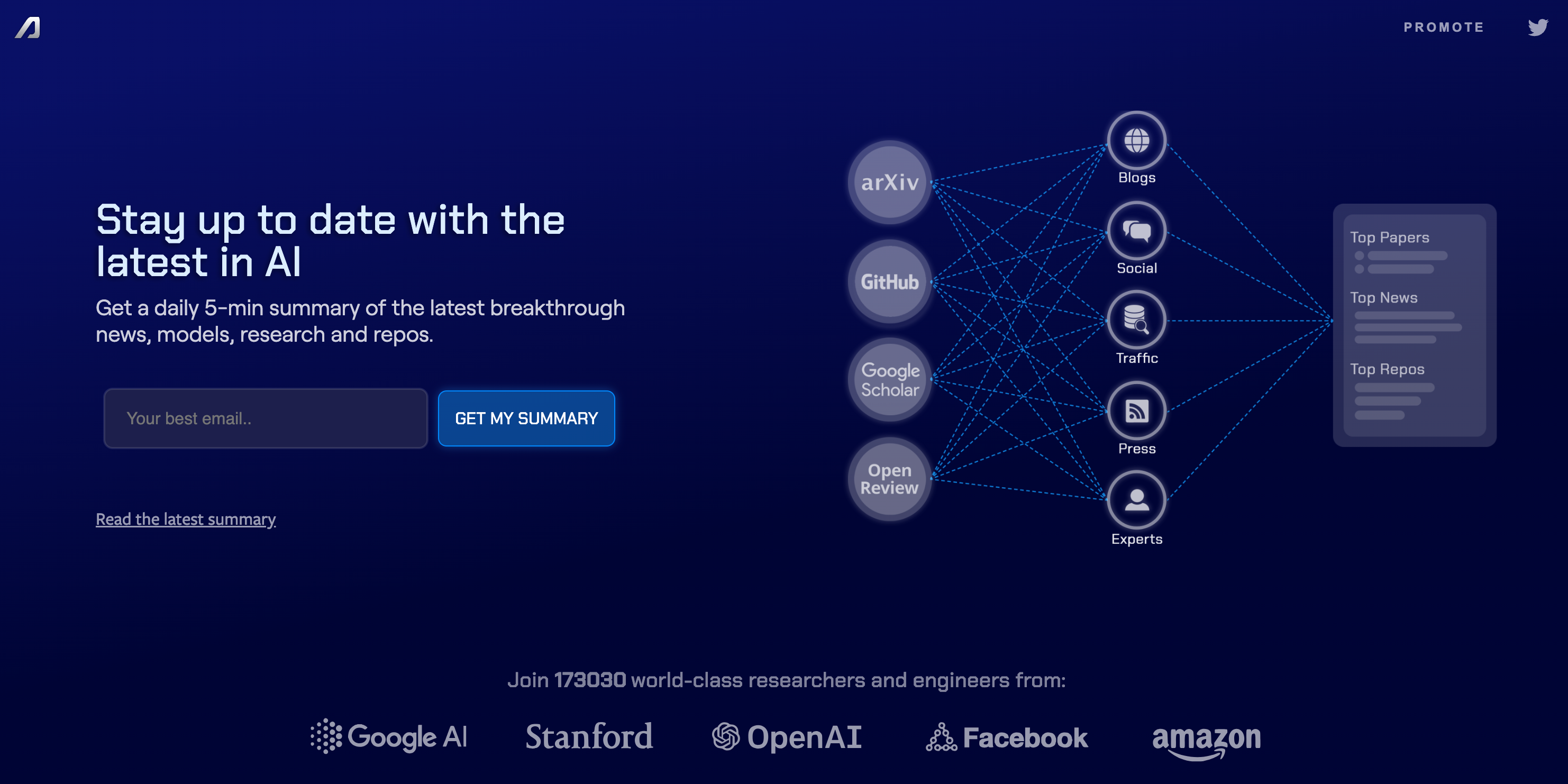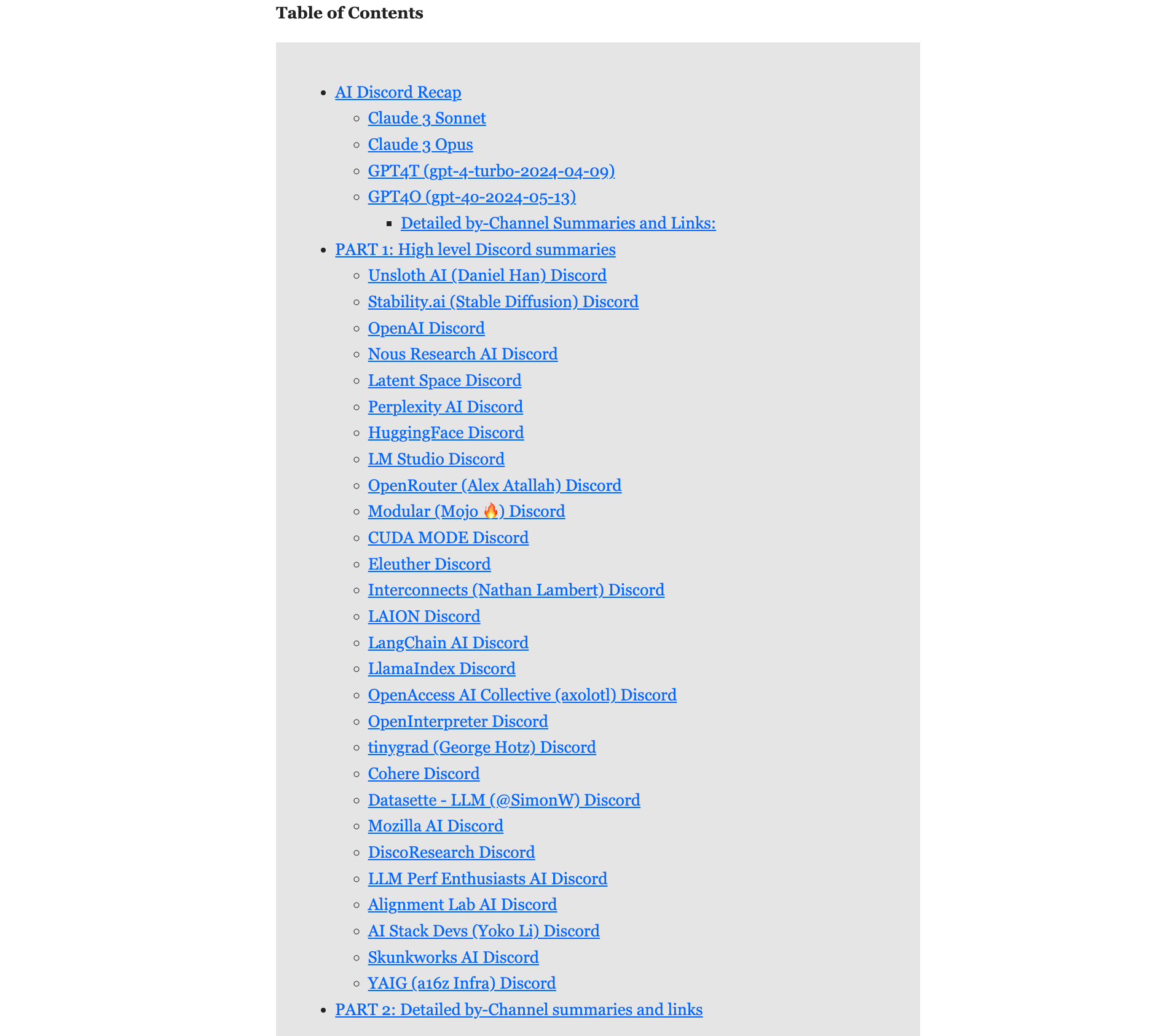How I Stay Up-To-Date On The Latest AI Advancements Without Feeling Overwhelmed
Published:
Keeping up with the latest breakthroughs and industry trends can feel like an endless pursuit, leading to information overload.
In the rapidly evolving field of AI, staying adaptable and committed to lifelong learning is crucial for long-term career success. Embracing a mindset of continuous growth and adaptation is key to staying ahead.
With so much information available, it’s easy to feel overwhelmed. Here’s how I stay updated without getting bogged down.
Start with a Broad Overview and Curate Sources
When diving into AI, I begin with a broad overview. This approach allows me to identify key areas of interest, provide context, and make connections across different domains. It allows me to make informed decisions on where to focus my efforts.
To avoid information overload, I curated a mix of resources to allow me to navigate the AI landscape efficiently, separating the signal from the noise.
Newsletters: Curated Overview of the AI Landscape
Newsletters are an efficient way to stay informed. They provide curated summaries of the most exciting and impactful AI developments, saving you countless hours of sifting through papers, social media, and forums.
Succinct Overviews: Alpha Signal
Alpha Signal offers concise 5-minute daily summaries of the latest state-of-the-art projects, notebooks, and GitHub repositories. This allows you to learn and build with the latest LLM techniques quickly.

Alpha Signal Landing Page
I appreciate its concise and matter-of-fact approach, providing a clear overview of the most exciting ideas and trends capturing the community’s interest.
You can read their latest newsletter here.
Comprehensive Coverage: AI News
AI News by Sywx and Latent Space is an excellent choice for those who regularly use and build with AI.
It provides comprehensive daily updates using web scraping and AI to summarize content from 800 sources, quantifying the time saved.
At the time of writing AI News uses Claude 3 Opus for all recaps, best of 4 runs. They are working on clustering and flow engineering with Haiku.

AI News time saving
Although the AI-powered summaries may occasionally contain inaccuracies, the direct links allow you to dive deeper into conversations that catch your interest.

Table of Contents from a typical AI News Newsletter
You can read through the archives here to try before subscribing.
Other Newsletters Worth Trying
I’m selective with my newsletters to avoid inbox and mental clutter. Here are other newsletters that may be a better fit for you:
- TLDR AI: For a more informal daily digest
- The Batch by Andrew Ng and DeepLearning.ai
- The Atlas on LinkedIn
- 🥇Top ML Papers of The Week by Elvis and DAIR
For newsletters from individual AI practitioners, I’ll cover those in a future post. Typically, these newsletters and posts are longer and dive deeper into topics.
X (Twitter): The Pulse of Cutting-Edge AI
To hear news fresh off the press, I turn to X. This platform remains the go-to place for AI researchers and builders to share their unfiltered and honest thoughts and opinions on papers and the industry direction.
Although AI News covers X, I still schedule time to check these accounts and other platforms. This way, I can read the source the tweet is referring to. And often, the comment section is where the true insight lies.
I follow several AI founders, researchers, and open-source builders:
- Yann LeCun - Chief AI Scientist at Meta
- Andrej Karpathy - Previous Director of AI @Tesla, founding team @OpenAI
- DAIR.AI and elvis
- Jim Fan - Senior Research Manager at NVIDIA
- AK - AI research paper tweets, ML at Gradio
- Greg Kamradt - Builds AI + B2B products
- Jeff Dean - Chief Scientist, Google DeepMind and Google Research
- Greg Brockman - President & Co-Founder @OpenAI
- Demis Hassabis - Co-founder & CEO @GoogleDeepMind
- Clement Delangue - Co-founder & CEO @HuggingFace
- Jerry Liu - co-founder/CEO @llama_index
- Harrison Chase - founder of LangChain
- Chip Huyen - co-founder of a streaming-first platform for real-time machine learning, previously built ML tools at NVIDIA, Snorkel AI, Netflix, and Prime
- Eugene Yan - Senior Applied Scientist @Amazon building large-scale LLM systems
- Swyx - founder Latent Space
- Simon Willison - Creator @datasetteproj, co-creator Django
- Philipp Schmid - Tech Lead and LLMs at @huggingface
- Sebastian Raschka - Machine learning & AI researcher
Meetups and Events: High Interactivity
Attending meetups and events, both in-person and virtual, is a great and engaging way to learn from experienced professionals and gain insights into real-world applications of AI.
These gatherings provide opportunities for Q&A sessions, one-on-one conversations, and idea exchanges with other AI practitioners.
I recommend using meetup.com and lu.ma to find meetups and events in your area or virtual ones in your timezone.
Online Communities: Crowd-Sourced AI Insights
Online communities provide a dynamic platform for engaging with peers and experts in the field.
I engage with various online communities to expose myself to more diverse ideas. There are plenty of crowd-sourced knowledge and discussions on these platforms:
- LinkedIn: Many people on X will cross-post to LinkedIn, so you can follow them there if that’s your preferred platform
- Reddit: r/LocalLlama
- Discord
- Slack
- HackerNews
- Medium
- WhatsApp / Telegram groups
Participating in discussions and sharing insights with peers can foster learning, networking, and collaboration.
Conclusion
Through these curated resources, I’ve stayed afloat on the never-ending stream of information while avoiding information overload.
In a future post, I’ll share resource recommendations for diving deep into topics: research papers, technical blogs, meetups, YouTube, and podcasts.
Thanks for reading. If you have other content recommendations, be sure to leave a comment.
